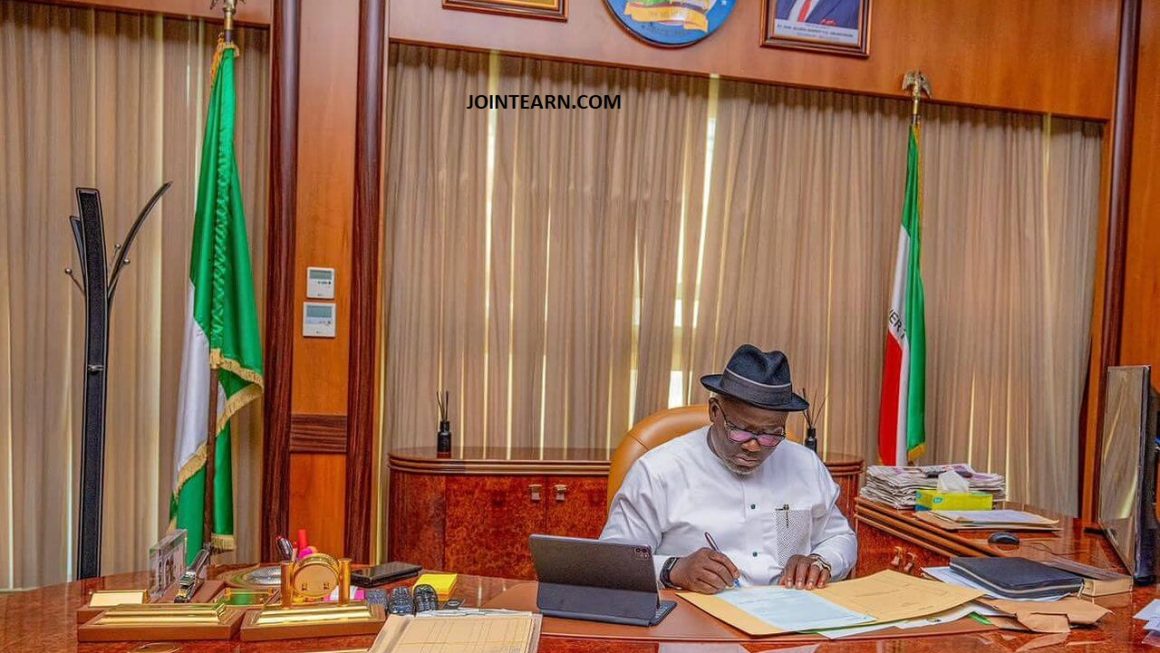The Comptroller-General of the Nigeria Customs Service (NCS), Bashir Adewale Adeniyi, has disclosed that the removal of fuel subsidy in 2023, while a bold economic move, has not significantly deterred the smuggling of petroleum products across Nigeria’s borders.
Speaking during a policy dialogue on border security and economic sustainability in Abuja, Adeniyi explained that a combination of regional price disparities, porous borders, and entrenched criminal networks continues to fuel the illicit trade in petrol and other refined petroleum products.
According to the Customs boss, the assumption that subsidy removal would automatically curb the incentives behind smuggling has proven to be overly simplistic.
Smugglers Still Finding Profit
“Despite the withdrawal of fuel subsidies, smuggling remains rampant because price gaps between Nigeria and neighboring countries persist,” Adeniyi stated. “Countries like Niger, Benin, and Cameroon still sell fuel at higher rates compared to the deregulated Nigerian market. This creates a strong incentive for smugglers to buy in Nigeria and sell across the border.”
He pointed out that although the subsidy regime had encouraged arbitrage in the past, the structural issues around Nigeria’s border management, regional fuel demands, and black-market dynamics still make petroleum smuggling a lucrative venture.
Adeniyi further noted that Nigeria’s 4,000-kilometre land border—much of it unmanned or poorly secured—remains vulnerable to illegal activity, enabling smugglers to transport fuel and other goods with ease.
Economic and Security Implications
The Customs CG emphasized that fuel smuggling not only undermines government revenue efforts but also poses a threat to national security. He stressed that many smuggling routes are controlled by criminal cartels that exploit weak enforcement to traffic not only petroleum but also arms, drugs, and human beings.
“Smuggling is no longer just an economic crime; it is tied to broader security threats across the Sahel and West Africa. These networks are often interconnected with bandits and insurgents,” Adeniyi warned.
He called for increased inter-agency cooperation, regional intelligence sharing, and the deployment of advanced surveillance technologies such as drones and sensor systems to monitor the borders more effectively.
Customs Efforts and Challenges
Highlighting recent successes, Adeniyi said the Nigeria Customs Service has made notable arrests and seizures, especially in border regions like Katsina, Kebbi, Sokoto, and Ogun. In the last quarter alone, NCS reportedly intercepted over 300,000 liters of smuggled fuel and impounded over 50 tankers involved in illicit transport.
However, he admitted that the agency continues to face logistical and operational challenges, including outdated equipment, insufficient manpower, and corruption among some enforcement officers.
“We need to modernize our operations to keep up with the evolving nature of smuggling syndicates,” Adeniyi said. “While we have made progress, the scale of the problem requires a comprehensive national and regional strategy.”
Call for Regional Collaboration
Adeniyi called on the governments of neighboring countries to take responsibility by regulating fuel imports within their own territories and by cracking down on buyers who create the demand for smuggled Nigerian fuel.
He also urged the ECOWAS (Economic Community of West African States) to establish a regional framework to harmonize fuel pricing and border trade policies in order to reduce the incentive for cross-border fuel smuggling.
“Unless there is a coordinated effort to address this from both sides of the borders, we will continue to chase smugglers endlessly,” he noted.
Stakeholders React
The remarks by the Customs boss drew varied responses from policy experts and stakeholders present at the forum. Dr. Tunde Olayemi, an economist from the Nigerian Institute of Social and Economic Research (NISER), agreed that subsidy removal alone was never a silver bullet.
“We need to understand that smuggling is driven by complex economic forces, not just subsidies. Unless we address regional pricing, corruption, and unemployment, smuggling will adapt and persist,” Dr. Olayemi said.
On his part, Abdulrahman Musa, a representative of the National Union of Petroleum and Natural Gas Workers (NUPENG), called for stronger collaboration between Customs, local communities, and oil marketers to monitor fuel distribution more effectively.
“Sometimes, illegal activities are enabled by insiders,” Musa said. “We need to tighten internal controls within the fuel supply chain.”
Looking Forward
Concluding his address, Adeniyi reaffirmed the commitment of the Nigeria Customs Service to curbing fuel smuggling and protecting Nigeria’s economic interests.
“We will not relent,” he declared. “But we ask for the support of all Nigerians—from community leaders to transporters—to report suspicious activities and stand against this economic sabotage.”
As Nigeria continues to grapple with the economic aftershocks of subsidy removal and inflation, the persistence of fuel smuggling remains a reminder that structural reforms must be accompanied by robust enforcement and regional cooperation to achieve their full impact.











